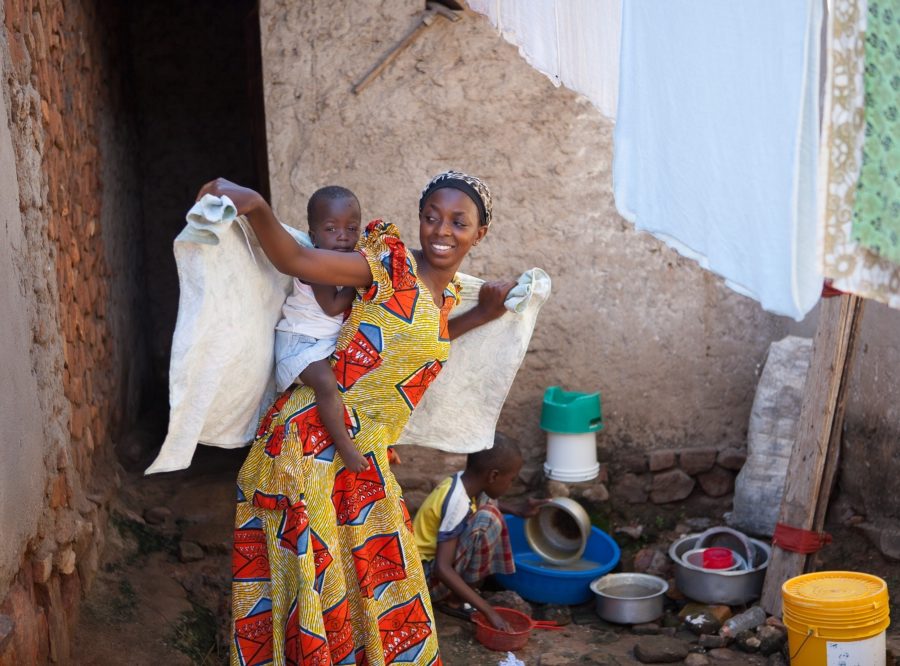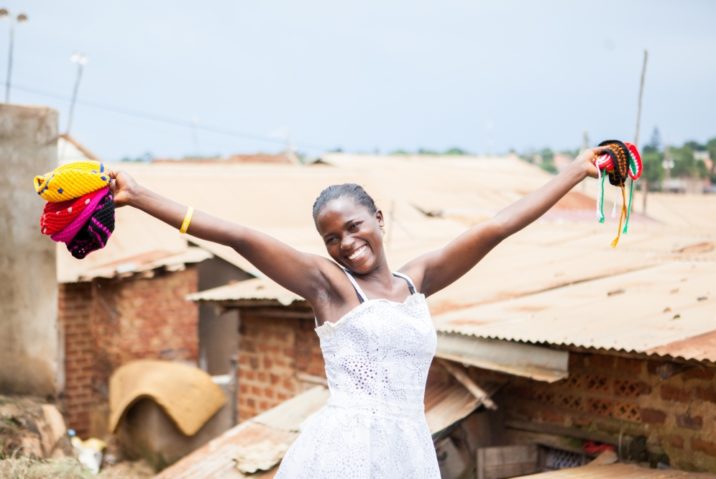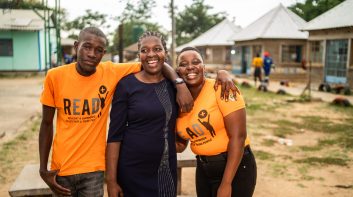
Sexual and reproductive health and rights (SRHR)
We work with young people, marginalised communities, and women and girls to access sexual and reproductive health and rights services.
HIV is the most lethal sexually transmitted infection; therefore, a lack of access to basic sexual and reproductive health and rights (SRHR) increases a person’s risk of contracting HIV.
Evidence shows that strong SRHR services in a fair society can prevent new HIV infections happening at all, while helping those living with HIV to enjoy healthy lives. Good sexual and reproductive health and rights IS good HIV prevention, treatment and care.
By taking a united approach to HIV and SRHR, Frontline AIDS partners ensure the most expansive and thorough services are available to people who are most affected by HIV, those most marginalised, and those most likely to be left out of mainstream public health services.
Ultimately, almost all 4.3 billion people of reproductive ages worldwide will have inadequate SRH services over the course of their lives…Progress in SRHR requires confrontation of the barriers embedded in laws, policies, the economy and in social norms and values…achieving sexual and reproductive health rests on realising sexual and reproductive rights…Thus, civil society groups and others committed to advancing SRHR must work across sectors, and they must hold governments accountable to their commitments not only to improve health but also to uphold human rights.Guttmacher-Lancet Commission on SRHR Report (2018)
Our approach
We work alongside communities to improve the quality of local HIV and SRHR services so that those at risk from, or affected by, HIV are placed at the heart of our work and get the help they deserve.
Our activities include:
- Safer sex education to prevent sexually transmitted infections, HIV and unwanted pregnancies.
- Family planning and HIV services, including fertility protection for those living with HIV.
- Prevention, diagnosis and treatment of sexual and reproductive health-related cancers.
- Strengthening community voices, ensuring they are heard in law and policymaking to protect them from harassment and abuse.
We also work with community leaders, parents, teachers, police and health workers to address social factors that undermine SRHR, such as harmful social norms around early marriage, discrimination and gender-based violence, and to create safe, accessible HIV treatment services.
HOW WE DO IT

This guide contains information, strategies and resources which define Alliance...

A toolkit for anyone who wants to facilitate participatory learning activities...
OUR IMPACT
We’re proud of our SRHR work around the world. In 2019, we:
- Provided 6.3 million marginalised and other vulnerable people with SRHR interventions.
- Helped over 1.4 million young people access comprehensive sexuality education and/or lifeskills based HIV education.

HOW OUR WORK HELPS MARIAM
You can’t help but notice Mariam’s smile. It lights up any room. But that hasn’t always been the case. At just 12 years old she became pregnant by an older man and contracted HIV.
Blamed and abused for what happened, Mariam went to live with her grandmother. Soon after her baby was born, Mariam fell sick.
Everything changed when a health worker referred her to a Frontline AIDS partner and she started taking antiretroviral treatment. Selected by her peers, Mariam is now a peer counsellor. She talks to other young women about sexual and reproductive health, sexual rights and HIV; encourages peers to go and test for HIV; and gives training sessions to empower young people.
Today, Mariam has a healthy daughter and a vibrant sewing business.
“The staff are so good, they are so devoted, there’s real love there,” says Mariam. “I can’t believe I’m this person – I thought my life had ended at 12.”
Will you help us end aids?
I would like to make a donation of:
Please enter the amount you would like to donate, ie: '10.00'



